

According to Aldous Huxley,
"People will come to love their oppression, to adore the technologies that undo their capacities to think."

While examining how modern technology shapes our thinking patterns, I uncovered a deeper reality that extends beyond individual cognitive failure. What became unmistakable was how our information systems are systematically manufacturing functional stupidity - not through conspiracy or accident, but through the inherent design of attention-harvesting technologies. I've broken down this pattern to make visible how intelligence itself is being undermined at a structural level.
How Smart Systems Manufactured Functional Stupidity
An analysis of how systematic intellectual abdication threatens technological civilization
It's 11:47 PM. You meant to be asleep an hour ago, but here you are, thumb flicking upward in that zombified rhythm, watching a woman explain why she's divorcing her husband via interpretive dance. Before this, it was a video about geopolitical tensions you barely understood, then something about a celebrity's skincare routine, then footage of a traffic accident that made your stomach clench while you refused to scroll past.
Your rational brain screams "GO TO BED" while your thumb continues its relentless march. You actively feel dumber than you did three hours ago, yet you'll repeat this ritual tomorrow night. This isn't a personal failing—you've been systematically hacked by the most sophisticated manipulation technology in human history.

The most dangerous threat to modern civilization isn't external enemies or natural disasters. It's the systematic rewiring of our brains by systems designed to profit from our confusion. We're witnessing an unprecedented experiment: human minds, evolved for small tribal groups, plugged into a global attention economy that harvests our consciousness as raw material.
Our hunter-gatherer ancestors tracked deer and avoided predators. You now stand expected to form opinions about cryptocurrency regulation, Middle Eastern foreign policy, and whether lab-grown meat will save the planet—all while bombarded with notifications designed to keep you in a state of perpetual emotional arousal.
Picture the smartest person you know personally—someone you genuinely respect. Now, recall the last completely baffling decision you watched them make. Maybe they fell for an obvious scam or got swept up in some toxic online community.
That moment when you thought, "How could someone so smart be so stupid about this?" Not individual failure—but system failure. Your brilliant friend isn't broken; they're exhibiting "functional stupidity"—the systematic abandonment of critical thinking in favor of emotional shortcuts.
“Functional stupidity refers to an absence of reflexivity, a refusal to use intellectual capacities in other than myopic ways, and avoidance of justifications” (Alvesson & Spicer)
This behavior metastasizes across every level of society. And here's the kicker: it's not a bug in the system. It's a feature.
The Computational Impossibility of Modern Decision-Making
Here's the impossible game you're playing every single day: You wake up, check your phone, and the first headline demands you form an opinion about nuclear energy policy. To have a genuinely informed opinion, you'd need roughly eight years of graduate-level study in physics, economics, and policy analysis. And you haven't even had coffee yet.
But wait—the next headline shouts about healthcare reform. Add another decade of expertise in medical economics and insurance markets. The third story demands expertise about AI regulation. Better get started on machine learning and constitutional law.
Even with a PhD in nuclear engineering, you'd still lack the economic expertise. Acquire the economics degree, and you're still lost on the climate science. It's not that you're not smart enough— the human brain cannot contain all the specialized knowledge that modern life demands.

Yet somehow you're expected to vote on all of this with equal authority, whether you're an expert or someone choosing based on yard signs. We're asking every citizen to be Leonardo da Vinci in an age when human knowledge doubles every twelve months.
So what happens? We take shortcuts. We pick a team—liberal or conservative, pro-business or pro-environment—and let them do the thinking for us. We share articles we haven't fully read because the headlines confirm what we want to believe. We make gut decisions and then backfill the reasoning later.
This isn't laziness—it's survival. When you're working two jobs and raising kids, spending forty hours researching tax policy isn't noble dedication, it's insane. Your individual vote statistically changes nothing, but your unpaid bills will definitely get you evicted.
The Systematic Production of Cognitive Overload
Your personal struggle reveals something darker: this overload comes by design. Tech companies hired teams of neuroscientists and behavioral economists to deliberately hack your brain's reward systems. They studied gambling addicts and cocaine addiction to design notification patterns that hit the same dopamine pathways.
Consider the teenagers in your life. They're spending 5.5 hours daily on social media—nearly a third of their waking hours consuming content designed to trigger maximum emotional response. Watch a teenager try to read a book now. Notice when their eyes dart around after a few paragraphs. Not moral weakness—but neurological rewiring.
Dietrich Bonhoeffer, writing from his Nazi prison cell, watched intelligent Germans make catastrophic decisions while convinced they were being virtuous. He called it "the power of stupidity"—but he thought in terms of individual moral failure. What he couldn't see from his cell was how entire information ecosystems could be weaponized to manufacture stupidity at scale.
Today's "stupidity" isn't moral weakness—it's engineered helplessness. Algorithms learn from millions of users simultaneously, constantly optimizing to capture and hold attention. They discover that outrage keeps people scrolling longer than nuance. That fear spreads faster than hope. Those simple answers feel better than complex truths.
The result? We're training ourselves to prefer whatever makes us feel something immediately, even if it makes us think less clearly over time.
The Economics of Attention Hijacking
Every second you spend on Facebook generates about $0.001 in revenue. A tenth of a penny seems trivial until you realize Facebook harvests 3 billion people simultaneously. Your individual consciousness holds little value, but our collective consciousness ranks as the most valuable resource on the planet.
The business model operates with brutal simplicity: capture your attention, keep you emotionally engaged (angry, afraid, or aroused work best), and sell your behavioral data to advertisers. Rational deliberation spells disaster for this model—who wants to sell ads to people thinking carefully?
TikTok's algorithm maps your psychological profile so accurately that it can predict what you'll want to see fifteen minutes from now better than you can. Imagine a dealer who knows exactly when you'll need your next hit, and exactly what kind of hit will keep you coming back.
Your preferences aren't served—they're shaped. Molded into "someone who can't focus on anything longer than a TikTok video."
I call this "inference collapse"—our collective ability to connect dots, follow complex arguments, or sit with uncomfortable ambiguity actively degenerates. We're becoming a species that can identify faces in clouds but can't follow a chain of reasoning longer than a tweet thread.
Democracy requires citizens capable of wrestling with messy complexity—healthcare reform with no perfect solutions, climate policy with painful trade-offs. But our brains undergo systematically training for the exact opposite: instant emotional reactions to stories with clear heroes and villains.

We're trying to run a 21st-century democracy on Stone Age brains hooked to slot machine interfaces.
Beyond Individual Solutions: The Structural Problem
You've tried everything, haven't you? Downloaded the screen time apps. Set phone-free zones. Maybe even did that digital detox retreat. And it worked! For about a week. Then you were right back to zombie scrolling, wondering what's wrong with your willpower.
The truth: you're not fighting a fair fight.

Your willpower depletes every time you make a decision or resist a temptation. Meanwhile, you're up against systems with unlimited resources—teams of neuroscientists, billions in research funding, and algorithms that learn from every user click on the planet. You're a single human trying to out-discipline the most sophisticated persuasion technology in history.
The game comes rigged. Researchers who challenge academic orthodoxy risk their careers. Politicians who try to explain complex trade-offs lose to those promising simple fixes. Citizens who spend hours researching policy positions get the same vote as those who choose based on yard signs.
We've built a civilization that systematically punishes good thinking and rewards cognitive shortcuts.
Each person makes the individually rational choice to remain ignorant about most things, because why shouldn't they? But when everyone makes this reasonable individual choice, the collective result becomes a society incapable of making good decisions about anything that matters.
The Architecture of Collective Intelligence
So what now? Stop trying to fix people and start fixing systems. Our brains evolved to handle gossip about 150 people in a tribal village, not global supply chains and nuclear policy. Instead of pretending we can upgrade human hardware, let's build better software.
We need cognitive infrastructure as urgently as we need physical infrastructure. You don't build your own roads or generate your own electricity. We built shared systems that make individual life possible and productive.

What if we built shared systems for thinking? Infrastructure designed to make us collectively smarter instead of individually more confused?
- Information Architecture Reform: Force algorithms to reveal their methods. When Facebook's feed decides what you see, you should know why. Fund public media designed to inform, not enrage. Create spaces for slow, careful thinking in a world optimized for fast, emotional reactions.
- Incentive Realignment: Reward politicians for solving problems, not for getting clicks. Create spaces where admitting uncertainty signals wisdom, not weakness. Make "I don't know, but here's how we could find out" a viable political position.
- Cognitive Load Distribution: Stop asking everyone to be experts on everything. Create trusted institutions staffed by actual experts who can translate complex issues into accessible choices. Consider specialized juries for policy decisions.
Who Stands Fast?
Bonhoeffer asked, "Who stands fast?" when the world goes insane. But he thought about individual heroes rising above the crowd. What if the real question becomes: how do we build systems where more people can afford to be heroes?
The people who stood firm during historical crises had something the others didn't: safety nets. Economic security. Social support. Alternative sources of information and authority. Bonhoeffer had family wealth, international connections, and a theological framework that gave him somewhere to stand when the ground shifted beneath everyone else.
However, most people don't have those luxuries. When you're working two jobs to make rent and isolated from any community that might support you in holding unpopular truths, independent thinking becomes expensive. We've built a society where clear thinking functions as a luxury good.
Engineering Wisdom at Scale
Understand this: you're not broken. Your friends aren't broken. That smart person you know who believes obviously crazy things isn't broken. Our system's broken.
The real revolution isn't teaching people to think better—it's building civilizational infrastructure that makes thinking possible again. We don't expect individuals to build their own roads or generate their own electricity. Why expect them to single-handedly resist cognitive systems designed by teams of neuroscientists and behavioral economists?
This requires acknowledging something our current discourse avoids: our technological and economic systems stand fundamentally incompatible with the kind of collective intelligence that complex civilization requires. We can either redesign those systems to support human cognition or watch them systematically degrade our decision-making capacity until critical choices become impossible to make rationally.
The choice isn't between thinking and not thinking. It's between designing systems that make thinking possible and continuing with systems that systematically prevent it.
Bonhoeffer witnessed what happens when intelligent people stop thinking independently. But he focused on individual moral choices rather than the structural forces that make such choices impossible for most people. The deeper question isn't who stands fast when thinking becomes difficult—it's how we build civilizational infrastructure that makes thinking easier for everyone.
When your house is on fire, you don't lecture the flames about personal responsibility. You call the fire department and redesign the building codes.

🌶️ Courtesy of your friendly neighborhood, Khayyam
Don't miss the weekly roundup of articles and videos from the week in the form of these Pearls of Wisdom. Click to listen in and learn about tomorrow, today.

Sign up now to read the post and get access to the full library of posts for subscribers only.

Khayyam Wakil studies how information systems shape human cognition and collective intelligence. His work examines the structural forces that influence thinking at scale, from attention economics to the architecture of decision-making in technological societies. Through his writing and research, he explores paths toward building systems that enhance rather than undermine human intellectual capacity.

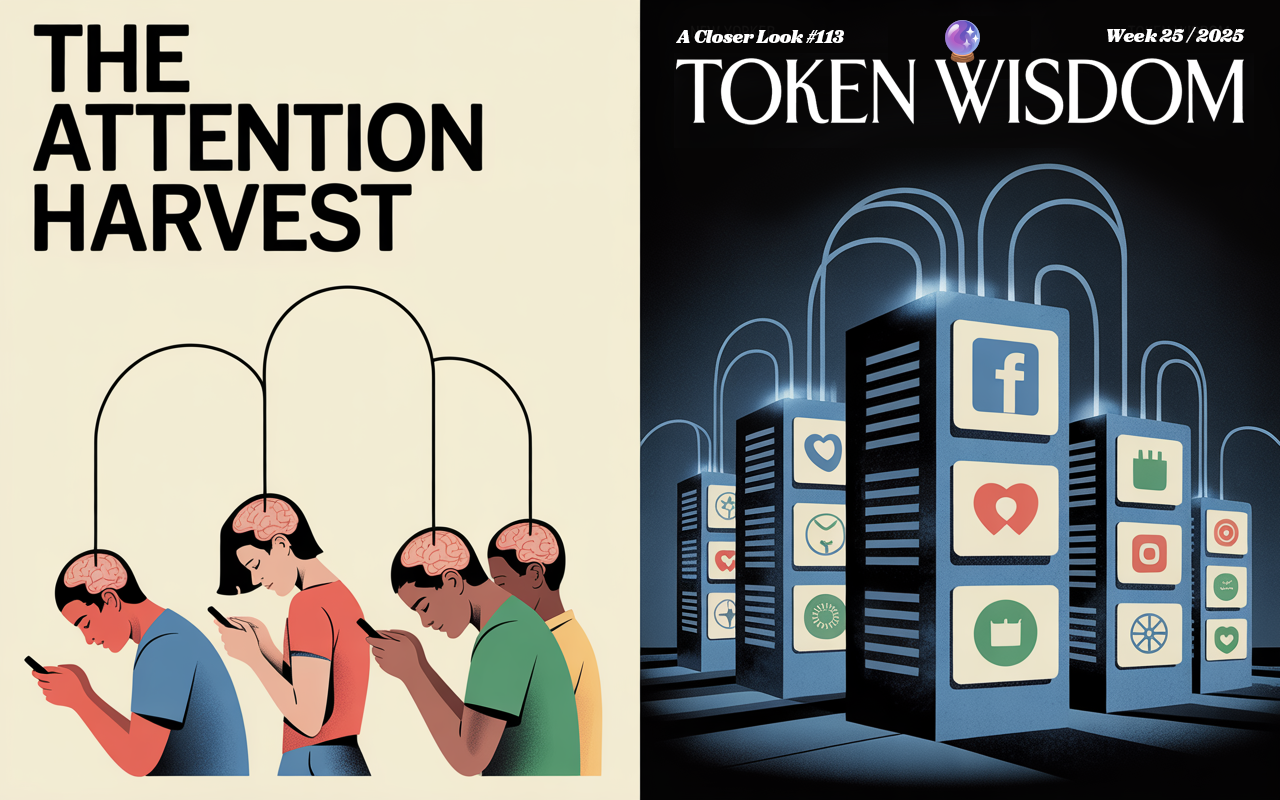


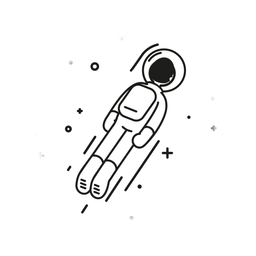
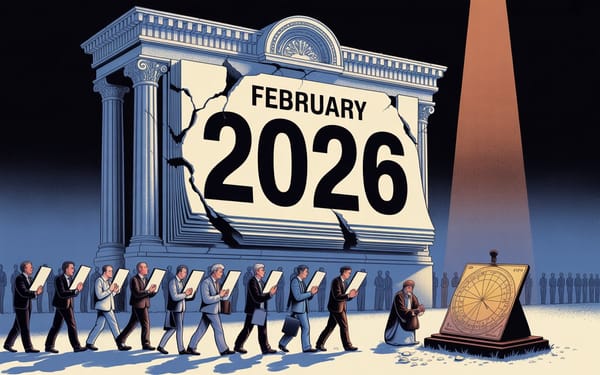
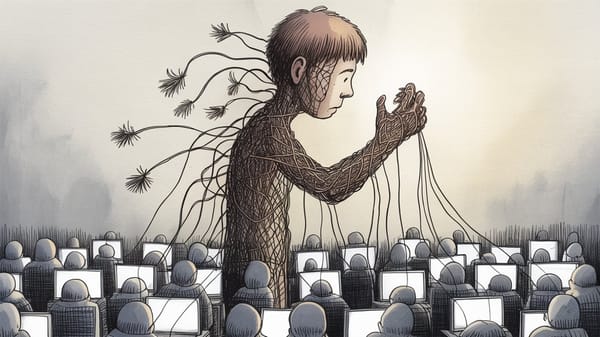
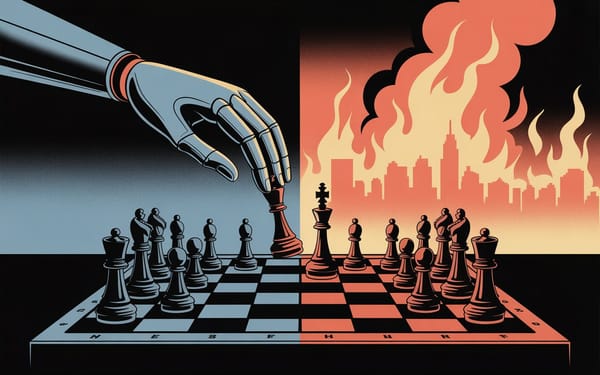
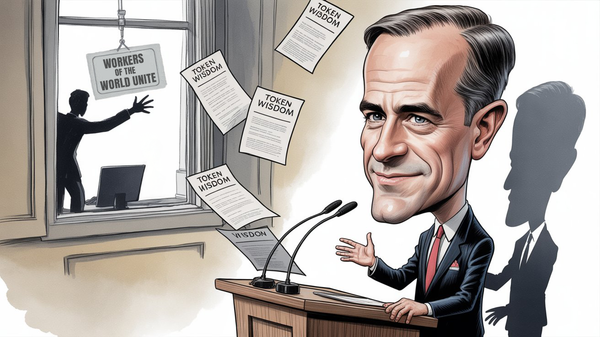
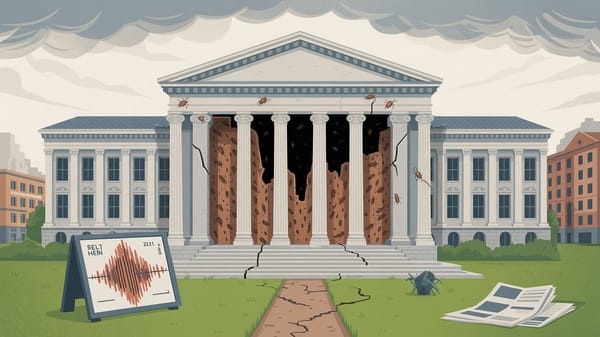
Member discussion